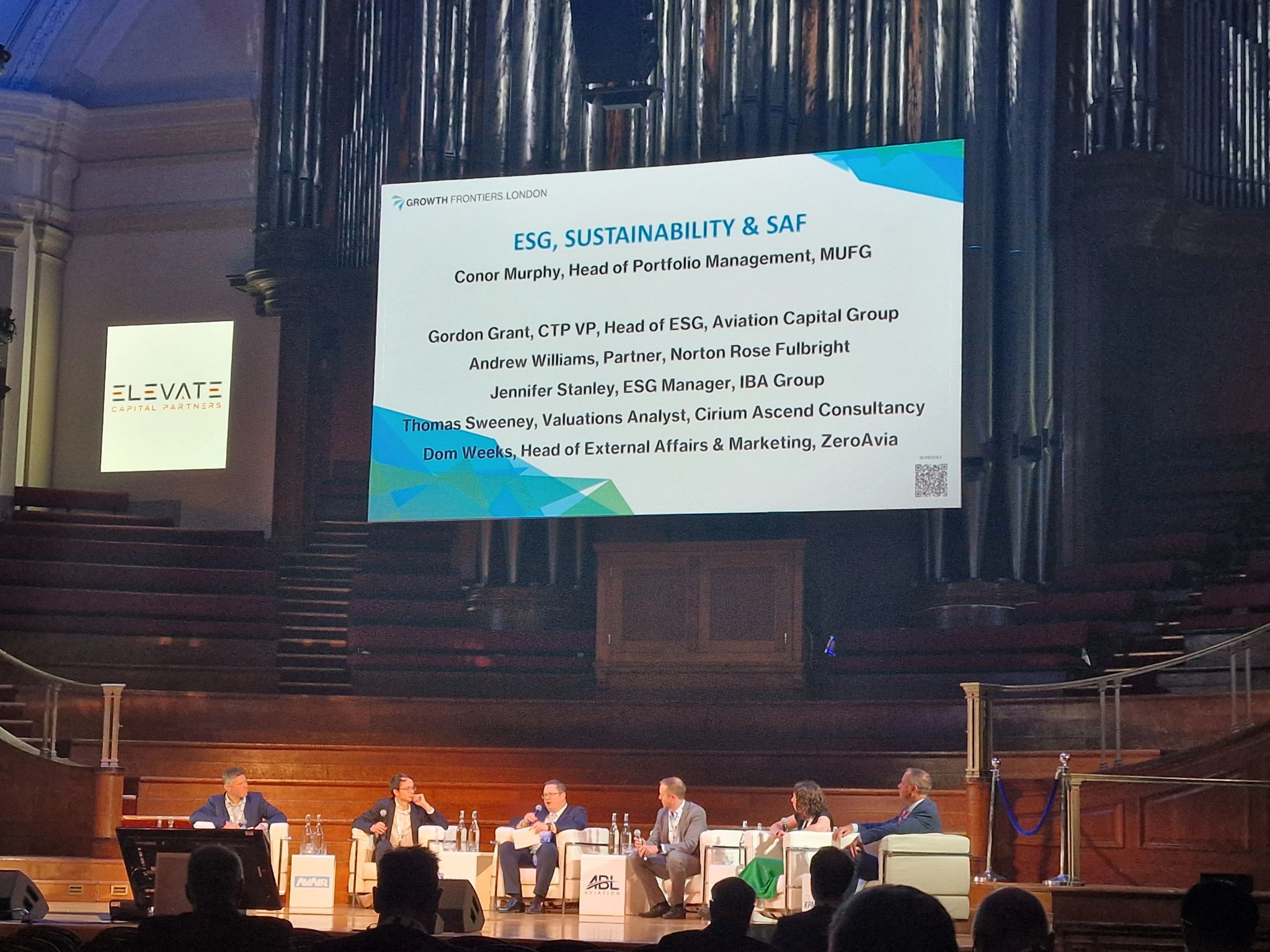Panellists at Airline Economics’ Growth Frontiers London 2024 called on greater collaboration from the aviation industry to reach 2050 targets.
The ESG / Sustainability & SAF panel was moderated by MUFG head of portfolio management Conor Murphy. Speakers included Aviation Capital Group (ACG) CTP vice president, head of ESG Gordon Grant; Norton Rose Fulbright partner Andrew William; IBA Group ESG manager Jennifer Stanley; Cirium Ascend Consultancy valuations analyst Thomas Sweeney; and ZeroAvia head of external affairs & marketing Dominic Weeks.
The panellists said that 2050 net zero goals were a rare case of bringing the aviation industry together, but more collaboration was needed in order to reach these goals.
The panellists largely agreed that technological progress was needed such as in hydrogen as well as SAF production in order to leverage their effectiveness in leveraging ESG pressures. They largely voiced the opinion that the answer to net zero did not land on one singular technology. Rather, the answer would be a result of exploring all options fully to meet these targets.
“There's some really interesting stuff coming so it's definitely going to take a lot of time getting it like we get using a lot of momentum that,” said one panellist, noting blended wing body jet technologies.
It was also agreed that the aviation industry’s endeavours towards net zero needed to be communicated more effectively and clearly to the public to gain further support, but to refrain from attempting to “pull the wool over their eyes”.
Policy levers in the EU include 20 million carbon credits for the use of sustainable aviation fuel (SAF). One speaker questioned how these credits will be distributed across airlines, adding that it was a “quite a small number” but a good start in the move towards net zero targets. It was also discussed whether the EU placed an unfair restriction on EU airlines with regulations weighing more heavily on them compared to competitors in other regions – particularly Asia. As well, they agreed that policies could blend ‘carrot and stick’ approaches to incentivise as well as push the industry to its goals.
One panellist said that 2050 would not be the end game for net zero, but it will “push the needle” and will need to be sustained beyond.

